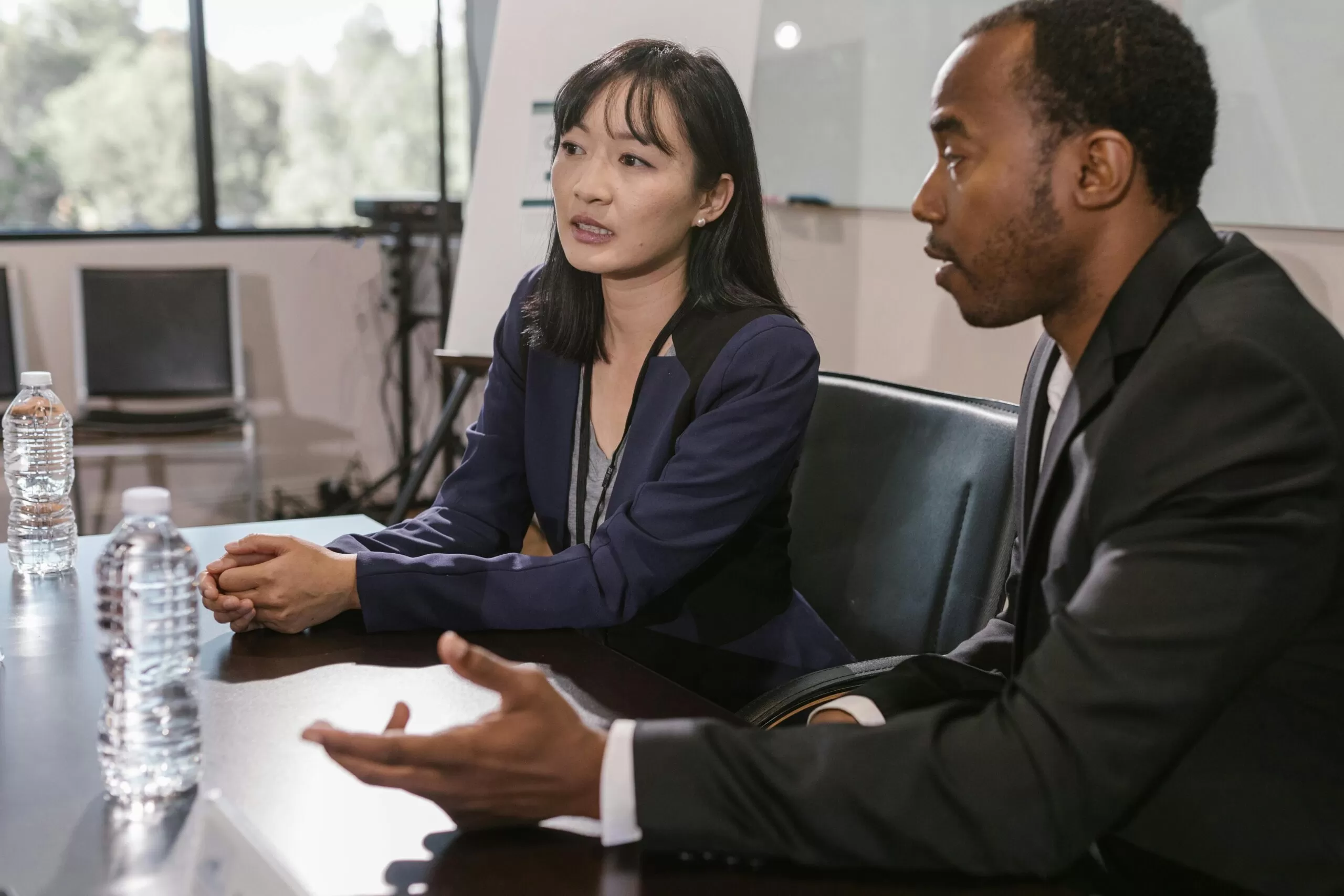How many times have you heard someone say, I know it’s true, because I’ve been there? There’s almost nothing more convincing than personal testimony. We all have strong opinions, but what’s important to you may not be as important to me simply because I haven’t experienced it.
After experiencing the pain and suffering, had time to reflect on it. Is it possible for you feel differently about the opposing issue? Say you had been involved in a shooting or grew up in a disadvantaged neighborhood? Political discussion in the workplace is a challenging context for us to reach common ground, especially when there are high stake consequences involved. But when we teach our leaders self awareness techniques to model and implement on their teams, we can foster principals of empathy and respect during turbulent times.
Most of our political motives are based on personal experience. Think about how many times you have started your reasoning with something you went through or knew someone who went through. If you were educated about how those beliefs could also be formulated by a co-worker, would it help you build more empathy for them?
The biggest danger we face is that political conversations bleed over into our otherwise healthy working relationships.
“If leaders don’t navigate interpersonal conflicts tactfully, it could hinder talent retention… When employees don’t see their leaders as effective with interpersonal skills, they are 3.5 times more likely to want to leave the company within the year.” – SHRM
With 60 days left in our election season, political discord could be a key opportunity for HR to influence our leadership teams on self-awareness skills with simple education on how we form beliefs.
Kolb’s Learning Theory
What makes some issues critical to us while others are not? One way to explain how we come to our conclusions is through Kolb’s Learning Model. Found in his book, ‘Experiential Learning: Experience As The Source Of Learning And Development‘, Kolb developed a four-stage experiential process we go through to form our thoughts, beliefs, and actions.
Each stage builds upon the prior one for a clear understanding, interpretation, and application of the event that took place. It’s a framework to understand the process behind personal testimonies. I know this to be true, because I have been there and lived it.
Thoughts and beliefs may not matter as much if we didn’t use those beliefs as reasons to take action. Even if those thoughts and beliefs don’t turn into action, which is the greatest concern (“hateful speech or violence”), political discourse in the workplace can cause damage to otherwise productive working relationships. When we understand the lived experience behind our political views, we come to a better sense of understanding of how to respect each other’s viewpoints.
Kolb’s Learning Theory

We feel. We watch. We think. We do.
There’s a more advanced version of this model but basically, it explains how we learn, think and feel about our experiences and explains why we take action on those experiences that inevitably start the cycle into going through another experience.
Once we each have an experience, we observe, reflect, and take action on those conclusions we have made. We begin the process by living through the experience and observing what happened. Internally, we start to feel and think about the experience. As time passes, we enter the next phase of experimenting, determining what we think about the event, and then we decide what to do.
Why Does Lived Experience Matter?
Strong misguided beliefs can easily create unbalanced decision-making. You might feel differently about an issue if you have experienced the pain and suffering involved with the cause of that problem. But just because you haven’t lived through something, doesn’t mean it’s not equally valuable. It’s just not applicable to you.
Applying a framework of how we form our beliefs encourages understanding and guides your team into how to approach each other with curiosity, not judgment. This is a similar to Non-Violent Communication, the reaction is diffused once we understand where someone else is coming from. We then increase our chances of working with them more effectively.
Questioning how we arrived at our conclusions based on what we learned is a way to be curious when caught up in a heated argument. With these tools, next time you hear a powerful argument for gun rights or abortion that is opposing your view, see if you can ask questions to see how they arrived at their conclusion. They may have gone through a powerful experience.
We mostly engage in political debates out of things we have experienced and lived. Turn on the TV at any time of the day, in the next 8 weeks, and you’ll hear:
- “I fought criminals.”
- “I grew up as an immigrant.”
- “I’m a business owner.”
- “We live near the border.”
These stories are a series of personal testimonies. If we were in their shoes, we might feel this way too. Sharing empathy is one of the most validating, non-violent responses to diffuse any debate and is a strategy of how your leaders can model principals of reaching (a small part of) common ground.
Political debates in the workplace are a tough place to apply this thinking, but with the high incivility rates, it’s a great challenge for your leaders to practice building curiosity, acceptance, and psychological safety into your culture. How can we ask each other more questions about why we believe what we do and find data on both sides, especially when it comes to making decisions.
That’s not to say we shouldn’t be cautious. More commonly these days, we are polarized, forced to choose a side. Either we care about reproductive rights or gun rights. When these issues have very little to do with each other, we join one group or the other for the sake of marketing, campaigning, and winning the presidential race.
Americans are actually much closer on issues than we think. Our system is set up to compare differences when the parties’ issues have changed over time. Abraham Lincoln, signed the Emancipation Proclamation to free slaves as the head of the Republican Party. Today, the Democrats took up the Black Lives Matter issue. When we question our beliefs, and even explore the other side, we find out we are much closer than we think.
Our main issue is when we generalize or label each other around a specific issue. When opposing traits of their character have been revealed through political discourse, we construct a story to make a judgment against them. It builds in our minds. The story fuels the actions we take, or the words we say.
How to Build Bridges During Election Season
Creating materials for your leadership team on how strong beliefs form and awareness around data and storytelling can influence leaders in preventing accidental judgments or, more catastrophic, biased decision-making within the workplace. These tools are simple, free, and a good win for HR if there is a positive impact.
See a sample trifold of education around interpersonal skills:
Educational materials around red flags in how we form opinions and make decisions can give your workforce the guidance and awareness to debate with curiosity and be aware of other negative influence in high stake business decisions. As a workplace, interpersonal training is the key ingredient missing for civility issues today.
Helping your leaders to learn tools and model how to reach common ground diffuses the intensity of workplace conflicts. The goal is not to lead to an agreement, but a mutual understanding of where people are coming builds a genuine and respectful interaction and a healthy culture.













